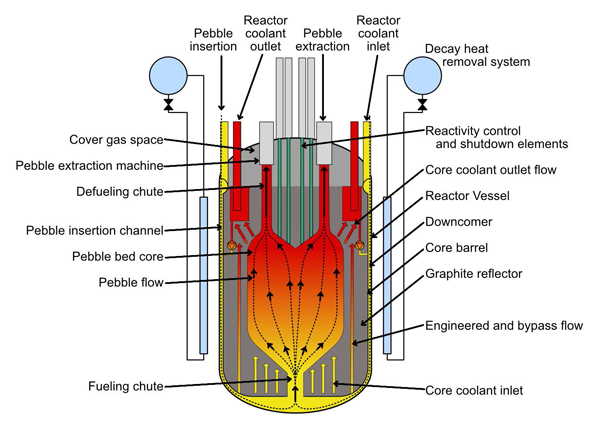The Trump Tariffs And The Question Of Judicial Review

Table of Contents
The Legal Basis of the Trump Tariffs (and their Challenges)
The Trump administration primarily justified its tariffs under Section 301 of the Trade Act of 1974. This act grants the President broad authority to take action against foreign countries engaging in unfair trade practices. The administration argued that these tariffs were necessary to address what it perceived as unfair trade practices and threats to national security, particularly from China.
-
Section 301 of the Trade Act of 1974: This section allows the President to investigate and impose tariffs on goods imported from countries found to be engaging in unfair trade practices, such as dumping (selling goods below market value) or violating intellectual property rights. However, the interpretation and application of Section 301 have been a source of considerable legal debate.
-
National Security and Unfair Trade Practices: The administration frequently cited national security concerns, particularly regarding technology and intellectual property theft, as justification for the tariffs. Critics argued that this stretched the definition of national security beyond its traditional meaning, potentially undermining international trade norms. The claim of unfair trade practices also faced scrutiny, with some arguing that the tariffs were more about protectionism than addressing genuine unfair practices.
-
Violation of WTO Rules: The Trump tariffs faced significant criticism for potentially violating rules and agreements of the World Trade Organization (WTO). The WTO generally prohibits unilateral tariff increases without justification under its dispute resolution mechanism. The US actions prompted several WTO challenges, highlighting the tension between unilateral trade actions and multilateral trade agreements.
-
Presidential Authority in Trade Matters: The extent of presidential authority in trade matters has been a contentious issue, with legal scholars debating the limits of executive power in this area. Some argued that the tariffs overstepped the President's constitutional authority, while others maintained that the Trade Act of 1974 granted sufficient power to justify the actions.
The Role of Judicial Review in Assessing Tariff Legality
Judicial review plays a vital role in determining the legality of the Trump tariffs. Various legal challenges were filed in US courts, arguing that the tariffs were unlawful on several grounds.
-
Judicial Review Process: Companies and other stakeholders impacted by the tariffs sought redress through the courts. They utilized established legal channels, including filing lawsuits in federal courts, challenging the administration's actions based on alleged violations of law.
-
Standing to Sue in Trade Cases: Establishing standing—demonstrating a direct and concrete injury—presented a significant hurdle for plaintiffs in tariff litigation. Courts carefully examined whether plaintiffs could demonstrate sufficient harm caused by the tariffs to have the right to sue.
-
Sovereign Immunity: The doctrine of sovereign immunity, which protects the government from lawsuits, posed another challenge. Plaintiffs had to demonstrate exceptions to sovereign immunity to pursue their claims.
-
Procedural Due Process: Some legal challenges argued that the tariff imposition process violated procedural due process rights, claiming a lack of adequate notice or opportunity to be heard before the tariffs were implemented.
-
Administrative Law Principles: The court examined the administrative procedures used by the relevant agencies in implementing the tariffs. These procedures had to align with the Administrative Procedure Act and other administrative law principles to avoid legal challenge.
Key Cases Challenging the Trump Tariffs
Several significant cases challenged the Trump tariffs in US courts. While the specifics of each case are beyond the scope of this article, these cases explored fundamental questions about presidential power, international trade law, and the limits of Section 301. The outcomes of these cases helped shape the legal precedents surrounding tariff litigation and continue to influence current trade policy discussions. Analyzing these rulings helps understand the nuances of judicial review in the context of trade disputes.
Economic and Political Ramifications of Judicial Review of Tariffs
The legal challenges to the Trump tariffs had significant economic and political ramifications, regardless of the outcome.
-
Economic Consequences: Upholding the tariffs could lead to higher prices for consumers and reduced competitiveness for American businesses. Striking down the tariffs could have its own set of economic consequences, such as affecting specific industries relying on protectionist measures. The economic impact was complex and depended on numerous variables.
-
Political Consequences: Court decisions on the tariffs had significant political ramifications, impacting the executive branch's authority in trade policy. Rulings impacting presidential power in trade could shape future administrations' approaches to trade negotiations and enforcement.
-
International Relations: The Trump tariffs and the subsequent legal battles impacted US relationships with trading partners. The challenges to the legality of the tariffs highlighted the potential tensions between unilateral actions and international trade agreements, significantly impacting global trade relations.
Conclusion
This article examined the legal battles surrounding the Trump tariffs, highlighting the crucial role of judicial review in assessing their legality under US and international law. The challenges to the tariffs revealed complex issues involving presidential power, trade law, and the economic and political ramifications of protectionist measures. The ongoing legal battles and their outcomes will significantly shape future trade policy. Understanding the interplay between Trump tariffs and judicial review is crucial for navigating the complexities of modern trade relations.
Call to Action: Understanding the complexities of Trump tariffs and judicial review is vital for anyone interested in trade law and US policy. Further research into specific case law and the evolving legal landscape surrounding tariffs is encouraged. Stay informed about the continuing implications of tariff litigation and its effect on the global economy. Learn more about the lasting impact of these trade disputes and the legal precedents set by the various challenges to Trump's tariff policies.

Featured Posts
-
 Nvidia Ceos Plea To Trump Revise Ai Chip Export Rules
May 02, 2025
Nvidia Ceos Plea To Trump Revise Ai Chip Export Rules
May 02, 2025 -
 Successfully Upgrading Reactor Power Working With The Nrc
May 02, 2025
Successfully Upgrading Reactor Power Working With The Nrc
May 02, 2025 -
 Check Your Tickets Saturday April 12th Lotto Results
May 02, 2025
Check Your Tickets Saturday April 12th Lotto Results
May 02, 2025 -
 Loyle Carner Announces Dublin 3 Arena Gig
May 02, 2025
Loyle Carner Announces Dublin 3 Arena Gig
May 02, 2025 -
 Remembering A Legend Amy Irving Honors Deceased Dallas And Carrie Star
May 02, 2025
Remembering A Legend Amy Irving Honors Deceased Dallas And Carrie Star
May 02, 2025
